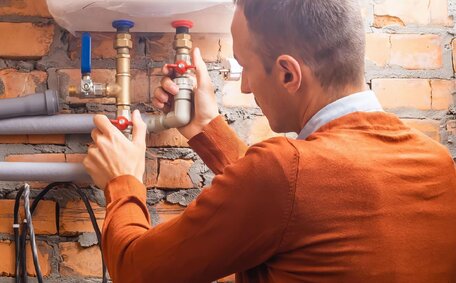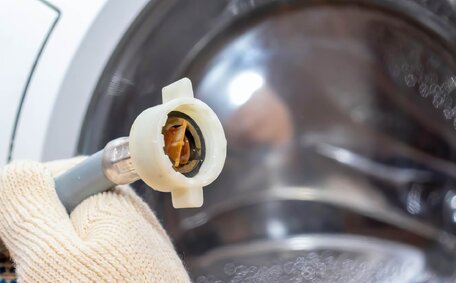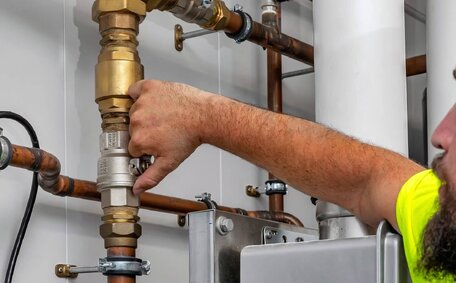Introduction to What Not to Put Down Drains
It’s essential to carefully consider what enters your plumbing system to ensure its longevity and protect the environment. Certain substances that get washed down your drains can cause major blockages, damage pipes, pollute waterways and overload sewage treatment facilities if disposed of irresponsibly.
As trusted plumbers located in Saint Marys, Sydney, the team at At Saint Marys Plumbing, we’re well aware of the damage caused by improper disposal down drains.
We strive to educate our community on proper disposal methods to prevent plumbing disasters and safeguard our local water resources.
In this article, we will run through some of the most problematic items that you should never pour down drain or flush down your toilet. We will detail the reasons for careful disposal of these materials and provide recommended alternatives. Avoiding common offenders such as fats, oils, and grease is essential for smooth plumbing operation and environmental protection.
Food Items That Clog Drains
Understanding which common food items to avoid putting down the drain is key to preventing pipe clogs and damage to your plumbing. Food particles, especially those not intended for sink disposal, can become trapped in pipes, leading to blockages when combined with fat and grease. Avoid pouring the following foods down your kitchen drain:
- Coffee grounds - Coffee grounds initially pass through but eventually clump together, resulting in clogged pipes.
- Egg shells - Shells don’t break down easily and can cause clogs through build-up over time.
- Rice and pasta - Starchy grains from pasta rice swell up in pipes and cause obstructions.
- Fruits and veggies - Food scraps like peels and seeds can snag in drains.
- Grease/oil - Cooking fats and oils solidify and coat pipes.
It’s wiser to dispose of kitchen food waste in a compost bin or trash rather than using the garbage disposal. Refrain from using your drain as a waste disposal unit; food particles can lead to significant plumbing issues and should not go into your kitchen sink. For persistent clogs, we recommend contacting a plumber to prevent further damage.
To address food waste clogs, use 1/2 cup of baking soda followed by 1 cup of vinegar, a proven unclogging solution.
Oils and Grease
It’s important to never pour fats, oils, and grease down your drain, as they solidify and create blockages. Although liquid when hot, oils and grease solidify upon cooling, adhering to the inside of your pipes. Over time, thick layers of hardened fats oils and grease will accumulate, which can lead to a severely blocked drain.
A drain clogged with grease can cause problems such as:
- Blocked or slow-flowing shower drains can halt wastewater drainage, a frequent domestic issue.
- Backed up pipes resulting in foul odours.
- Overflowing water when trying to use other fixtures.
- Expensive and difficult drain cleaning to remove thick grease deposits.
To sidestep grease clogs, responsibly discard used cooking oil and greasy food remnants, guaranteeing they never go down the drain. Better options for disposal include:
- Pour cooled oil into a sealed container and place it in your rubbish bin instead of down the drain.
- Combine oil with an absorbent material such as cat litter or paper towels before disposal.
- Compost small amounts of grease with brown matter, like dried leaves, and place into your compost bin.
- Collect surplus grease in a container for transfer to a recycling centre.
Adhering to these guidelines to keep fats, oils, and grease out of your sink will help prevent blockage damage. If you encounter drain issues, reach out to Saint Marys Plumbing; our licensed plumbers can resolve grease clogs and restore pipe flow.
Household and Personal Items
There are numerous household and personal products that should never go down your drains. These items can seriously damage pipes and sewer systems when washed down sinks and toilets.
Below are household and personal products you should avoid putting down the drain to prevent damage to the drainage system:
- Cleaning products - Chemical cleaners are detrimental to the environment and can interfere with water treatment processes, thus should never be poured down your plumbing. Dispose of them properly.
- Motor oil/gasoline - These will pollute waterways. Take them to an oil recycling centre.
Cotton buds and medications can also cause ecological harm when irresponsibly flushed down your toilet. The safest way to get rid of them is to:
- Return unused portions to your pharmacy.
- Combine medications with a deterrent like cat litter before you throw them away.
- Check if your community has medication take-back programmes.
Leftover paint and paint thinners have harmful ingredients and should be disposed of through hazardous household waste collections. Let leftover paint fully dry out before putting the can in your regular garbage.
Following guidelines for properly disposing of household and personal products will protect your pipes and prevent pollution. If you have any drain issues, contact Saint Marys Plumbing - our professionals can diagnose and resolve any plumbing problems.
Environmental Impact
Improper disposal of specific items down drains can lead to serious environmental consequences. When problematic materials like chemicals, oils and medications make their way into wastewater systems, they pollute waterways and disrupt sewage treatment processes.
Some key environmental impacts of putting the wrong things down drains include:
- Sewage overflows - Blocked drains and pipes caused by items like wet wipes, fats/oils/grease or improperly disposed of toilet paper can trigger sewer overflows, resulting in untreated wastewater entering waterways.
- Water contamination - Substances like paint, motor oil and medications that are flushed down drains spread pollution that harms aquatic ecosystems.
- Toxic algal blooms - Excess nutrients from food particles combined with chemicals like bleach and detergents can promote algal blooms that damage water quality.
- Harm to wildlife - Plastics, microbeads and other inorganic materials flushed down toilets/sinks can injure or kill aquatic creatures and birds.
Sewage treatment facilities often lack the capabilities to filter out many problematic substances from sink disposal. Around 80% of ocean pollution originates from drains and sewer systems attached to inland sources.
By responsibly disposing of non-flushable and hazardous items, households can prevent environmental contamination and damage, ensuring nothing harmful goes down sink. Some tips include:
- Checking if items can go to be recycled, repurposed or disposed of through council collections.
- Using drain strainers to catch food scraps and emptying them into green organics bins.
- Wiping pots/pans clean and disposing of oil and grease in the trash, not down drains.
- Opting for non-toxic, biodegradable products and only pouring bleach down minimally.
At Saint Marys Plumbing, we aim to keep our local waterways and environment protected. Learn more about responsible drain care and plumbing services to help reduce your household’s wastewater impacts by getting in touch.
Damage to Plumbing and Sewer Systems
Incorrect disposal down drains can inflict substantial damage on both household and municipal plumbing systems. Over time, disposal of unsuitable materials leads to cracked pipes, blocked drains, sewage backups and expensive repairs.
Some common ways improper drain disposal damages plumbing infrastructure include:
- Blockages - Food scraps and grease build up and harden, obstructing water flow. Wet wipes can become intertwined and get stuck within pipes, aggravating blockages.
- Corrosion - Products like bleach, drain cleaner and paint can cause damage as they strip away protective coatings inside pipes, causing them to corrode and decay.
- Fatbergs - Massive obstructions comprised of hardened amalgamations of fats, oils, grease, and waste accumulate in sewers, causing back-ups.
- Toxicity - Chemicals like motor oils, paint thinners and medications eat away at pipe materials like PVC and cast iron.
Consistent misuse of drains as waste disposals can lead to cracked pipes, blocked drains, and septic backflows, resulting in costly repairs.
At Saint Marys Plumbing, we have extensive experience clearing blockages and repairing damage caused by inappropriate drain disposal. Get in touch if you have a clogged or damaged drain - our licenced plumbers serve Saint Marys, Sydney and can get your plumbing back in working order.
Proper Disposal Methods
Disposing of household substances correctly is crucial for avoiding plumbing issues and environmental harm. Here are some recommended disposal methods for common problematic items:
Fats, Oils and Grease
- Ensure oils and greasy foods cool and solidify before disposing of them in your trash.
- Combine liquid oils with an absorbent material such as cat litter before discarding them in the trash.
- Wipe out greasy pans and dishes with a paper towel before washing to remove fat residue from going down kitchen sink.
Food Scraps
- Initiate a compost bin to dispose of fruit and veggie scraps responsibly and eco-consciously.
- Dispose of eggshells, coffee grounds, and other food waste directly in the green organics bin provided by your council.
- Use sink strainers to catch food scraps then empty them into the compost or garbage.
Chemicals and Cleaners
- Check product labels for disposal instructions - many offer recycling programmes.
- Inquire with your local council about designated days for household chemical waste disposal.
- Allow bleach/cleaners to fully react/evaporate, similar to a baking soda vinegar reaction, before placing empty bottles in trash.
Medications
- Take expired or unused medications back to your pharmacy for proper disposal.
- Mix medications with cat litter or coffee grounds before throwing away to prevent misuse.
- Inquire about free medication take-back programmes in your community.
Following proper guidelines for how to dispose of common household substances will help prevent plumbing emergencies. Contact Saint Marys Plumbing if you have any drain issues - our team can offer advice and solutions.






